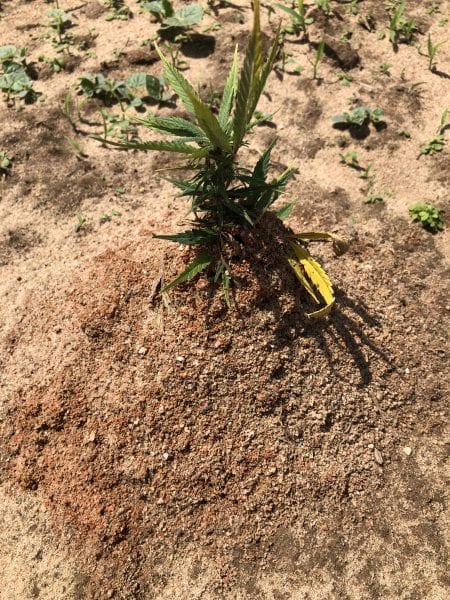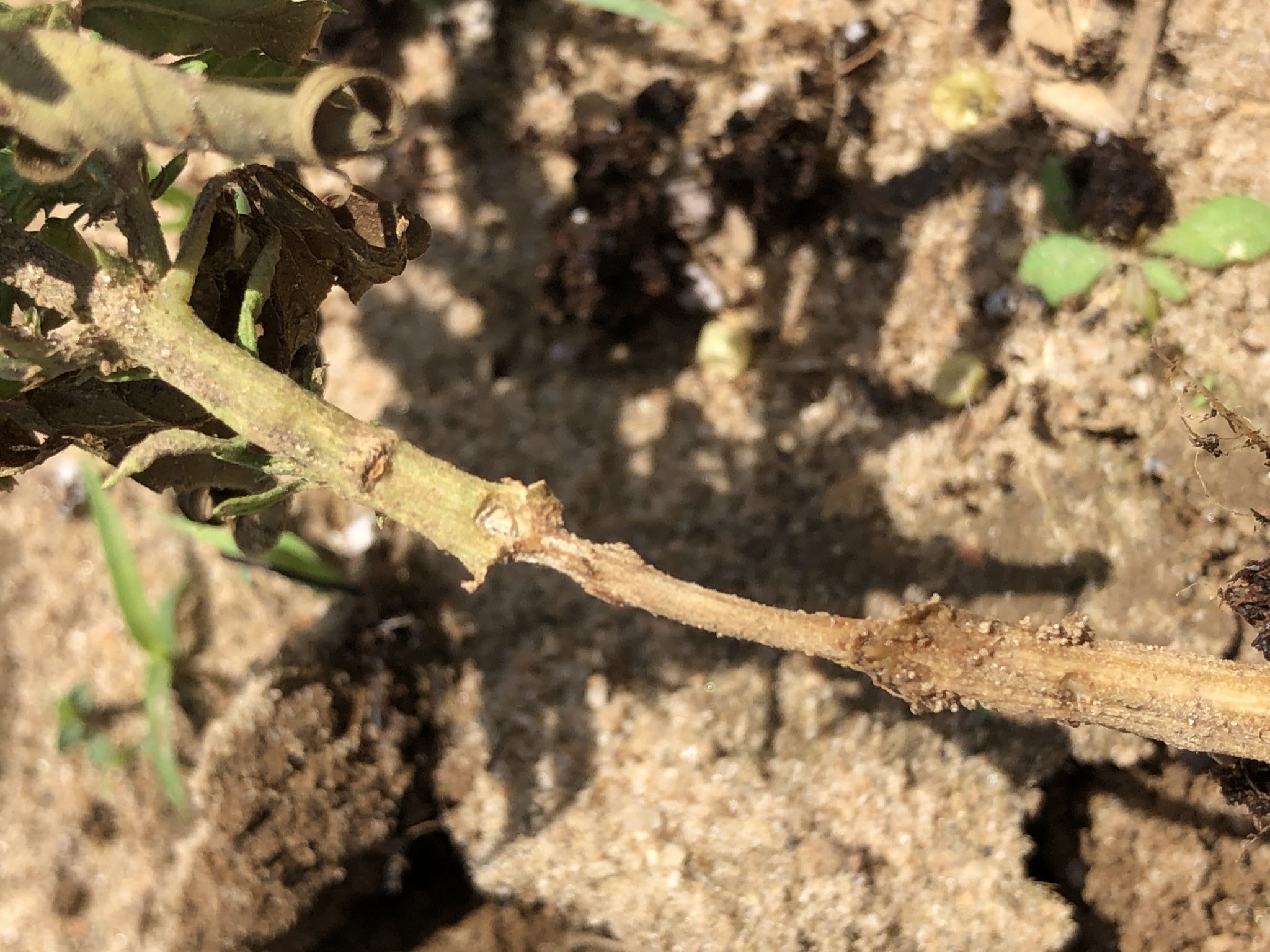Crop Production

Fire ants are active throughout Alabama and can cause damage to young hemp plants. For producers growing outdoor hemp in any capacity – including bare ground, plastic mulch, or in pots – they should check for fire ants and fire ant damage.
 Damage
Damage
Professionals first noticed fire ant damage on hemp during Alabama’s first year of legally growing hemp (2019). The ants will form mounds around the stem or adjacent to the plants and begin feeding. Fire ants can strip the bark and in some cases, tunnel through the stem. This cuts off all the nutrients and water to the rest of the plant which will eventually lead to plant death. Young hemp plants have already started to die with fire ant damage this year.
For areas that are experiencing high damage from fire ants, a two-step management method is recommended. This consists of putting out an insecticidal bait twice a year (spring and fall) and following up with individual mound treatments with approved insecticides. To gain effective control of fire ants, growers should avoid home remedies such as boiling water, gasoline, or other non-recommended products.
Effective Bait Products
Fire ants are social creatures that work together to protect their brood and queen. The key to successful fire ant management is to kill the queen to stop her from producing hundreds of eggs per day. Baits work by combining an attractant with an insecticide that worker ants will pick up and bring back to the colony. This food is then fed to the rest of the colony, including the queen.
Extinguish Professional is an effective bait product approved for use in Alabama hemp production and can be put out at low rates for mound control. Methoprene, the active ingredient in Extinguish Professional, is an insect growth regulator that will prevent queens from producing new worker ants. It is important to note that the worker ants that are foraging will not be killed by an insect growth regulator but rather will die of old age. Therefore, control is not immediate but growers should see results within four to six weeks. Extinguish Professional is not approved by the Organic Materials Review Institute (OMRI).
The products that are legal to use in Alabama on hemp can be found on the Alabama Extension website. This list is updated frequently, so contact your county Extension office if you have questions about a specific product.
Application Tips
For the bait to be effective, workers need to be actively foraging to retrieve the bait. Growers can perform a quick test to test whether the ants are actively foraging. Put out a food product that contains oil (potato chips and hot dogs are great) and see if it is covered in ants within 20 minutes. If not, then it is not a good time to apply bait. This can help producers make sure they are not wasting the product.
Keep in mind that ants do not forage in high temperatures, so applications should be done early in the morning or evening. Also, bait should only be put out in dry conditions when rain is not expected for 12 to 24 hours. Producers should always use fresh bait as ants will not feed on old or rancid bait.
For medium and large fields, it is best to apply fire ant bait using a GT-77 Herd Seeder. Alabama Extension has more than 40 seeders available throughout the state that producers can borrow. Contact your county Extension office to make arrangements.
About a week after putting out a bait, growers can follow with individual mound treatments. There are a variety of products available that will provide control within a few hours. Mound treatments come in various forms such as dusts, granules, or liquid drenches. Most are contact insecticides, which means the ants have to come into contact with the chemical to die. Mound treatments are faster acting than baits, but many fail to kill the queen.
More Information
The Alabama hemp industry saw a lot of fields that suffered yield loss last year due to fire ants. It is important to scout hemp for ants and other pests throughout the growing season. Growers can contact kak0083@aces.edu for any questions regarding pest management in hemp.

